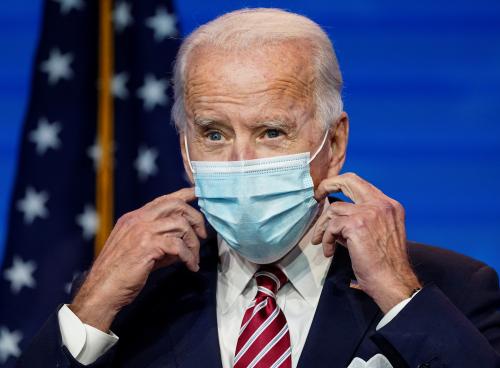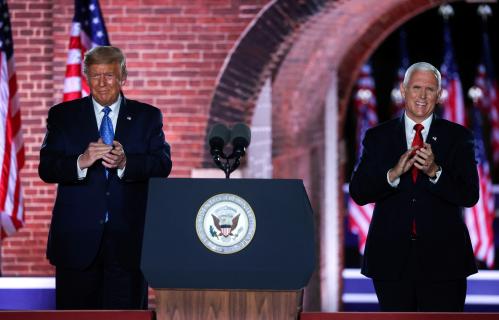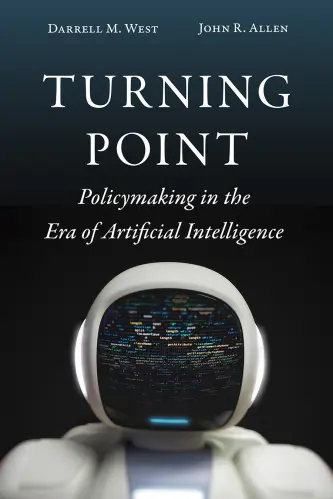In our Brookings Press book, Turning Point: Policymaking in the Era of Artificial Intelligence published last year, John Allen and I note the backlash against technology that has reduced public support for many things digital. As an illustration, Pew Research Center surveys show people are worried about privacy intrusions, cybersecurity risks, and misinformation campaigns. Many individuals think the pace of technological change is advancing too rapidly and it is hard to distinguish fake from actual phenomena.
Now a new Edelman Trust Barometer poll shows how much more widely this “techlash” has spread. In the United States, trust in the technology sector has fallen from 78% in 2012 to 57% in 2021. Globally, tech sector trust has dropped from 77% to 68% during that time. In less than a decade, according to that firm, the public has grown far more suspicious about misinformation, personal privacy, 5G networks, and AI bias, among other things.
The decline of public trust in the technology sector has profound consequences for how people view digitization and options for government oversight and regulation. The precipitous drop over the past year is noteworthy because of the crucial role technology has played in the pandemic response. Due to COVID-19, people have shifted to online learning, telemedicine, remote work, and e-commerce.
In this situation of widespread technology utilization to cope with the social distancing requirements of the pandemic, one might imagine the public would see the benefits produced in at least some of these areas would outweigh the costs and the risks. COVID-19 forced what otherwise might have been five years of digital change into five weeks. Nearly everyone has grown quite dependent on technology to work, learn, and communicate. That should have boosted public confidence in technology.
Yet the loss of trust suggests many are not happy with the role technology plays in their pandemic lives and feel there are many problems that need to be addressed. Although digital connections helped them work remotely, a number are suffering from Zoom fatigue, misinformation, privacy loss, and social isolation. A significant percentage seems to feel that tech risks outweigh benefits.
In addition, widely reported problems with online learning platforms have frustrated students, parents, teachers, and administrators. Rather than boosting confidence, these issues have eroded public trust. Although technology enables some types of learning, some experts have concluded students learned far less from online platforms than what would have been the case with in-person classrooms.
If public opinion continues to trend in negative directions for the technology sector, both in the United States and around the world, it likely will broaden support for government actions that regulate technology, raise taxes, ban certain applications, and limit product rollouts seen as detrimental to humanity. A lack of public confidence will encourage political leaders to take tough regulatory actions and limit the freedom private companies have had for decades to develop new products, bring them to the marketplace, and engage in international commerce.
Already, we are seeing some signs of these tendencies. For example, some American government authorities have beefed up their enforcement actions and regulatory oversight. At the national level, the Federal Trade Commission and the Department of Justice have launched investigations into the competitive practices of leading companies. A number of firms are expecting antitrust enforcement to move into other sectors as well as many businesses are compiling data and making use of automation and digitalization.
Locally, there have been bans or moratoriums placed on facial recognition software usage by law enforcement, limits on Airbnb rentals, and restrictions on the gig economy. Rather than being seen as a positive force for economic and social development, local officials see possible AI-based biases, harms to legacy firms, and unfairness in the way workers get classified as independent contractors. People want policies that are friendlier to workers and more protective of basic human values. The public opinion developments documented this year by major polling firms signal a choppy and volatile environment ahead for technology firms.
It is not clear what tech leaders can do to overcome this mistrust. In a politicized and polarized environment, there have been drops in public support for many entities. And in the case of technology, people especially don’t trust messengers that have the political and economic muscle of large internet platforms. But improving transparency regarding how algorithms work, taking public concerns seriously, and working with policymakers on guardrails that protect human values likely would strengthen public support for the sector. Making sure technology works for people is one of the most important things tech executives can do going forward.
The Brookings Institution is committed to quality, independence, and impact.
We are supported by a diverse array of funders. In line with our values and policies, each Brookings publication represents the sole views of its author(s).








Commentary
Techlash continues to batter technology sector
April 2, 2021